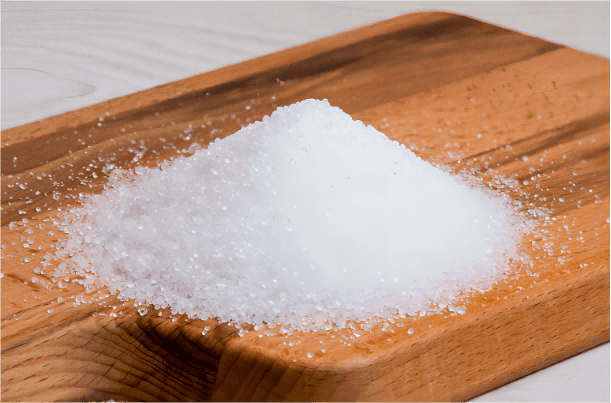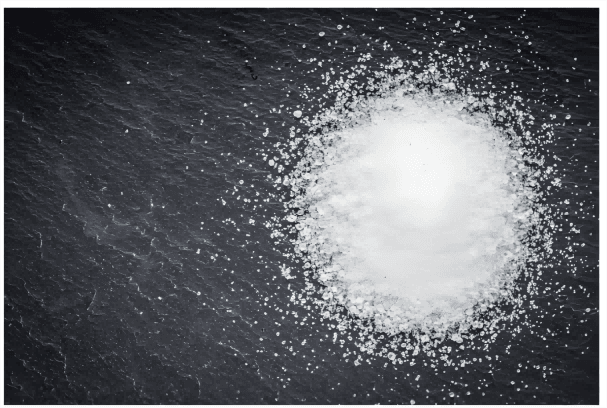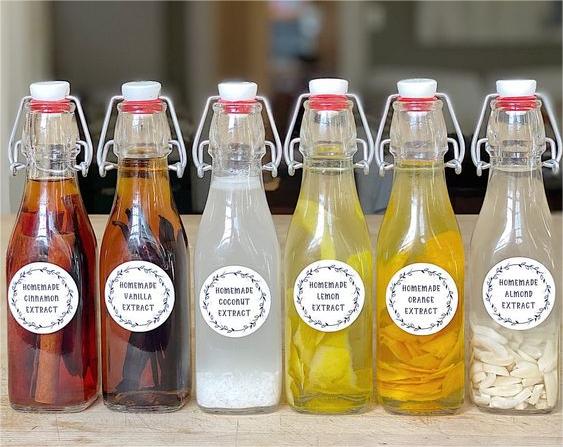Citric Acid Monohydrate Buying Guide—FAQs about buying Citric Acid

Looking to buy citric acid monohydrate but overwhelmed with choices and info? You’ve come to the right place! This guide simplifies everything about citric acid monohydrate – its uses, safety, packaging options, and how to buy in bulk. Whether you’re into cooking, cleaning, or making personal care items, we’ve got you covered.
We’ll also talk about common concerns like dietary restrictions, how long it lasts, and other possible substitutes. When you finish reading, you’ll know exactly which citric acid monohydrate is perfect for your needs.
What is citric acid monohydrate?
Citric acid monohydrate is a dry crystal form of citric acid. Each molecule contains one bound water molecule. Its chemical name is 2-hydroxypropane-1,2,3-tricarboxylic acid monohydrate. It has the food additive number E330. Anhydrous citric acid has no water. Citric acid monohydrate contains water molecules bonded to it. It appears as colorless or see-through crystals. It is commonly used in foods, pharmaceuticals, and industrial products. As a food additive, it provides tartness and acidity to foods and drinks. It controls pH levels to improve flavor and prevent spoilage. The bound water enables it to dissolve and disperse more easily in water or oils. However, anhydrous forms may be better for dry uses. Both forms are considered safe food additives when appropriately used at regulated levels.
Where can I buy citric acid monohydrate?
Contact Mondstar to buy citric acid monohydrate. We are a professional supplier with over ten years in the industry. We can meet your purchase needs.
Is citric acid monohydrate safe for consumption?
Yes, citric acid monohydrate is generally recognized as safe for eating. Regulators like the FDA and EFSA have extensively tested it. They found it poses little toxicity risk. Expert committees concluded intake at necessary levels for the desired effects is not hazardous. There are no safety differences between anhydrous and monohydrate forms. Occurring naturally in fruits and vegetables, citric acid is normal in our diet. Moderate amounts are not risky. Very high doses could potentially upset sensitive stomachs or irritate those with acid sensitivity. People with kidney stones may want to avoid excess intake. However, approved food additive levels, typically under 2-3% of a food’s weight, do not raise concerns for most people. So it is considered safe for human consumption.
Can I use citric acid monohydrate for cleaning purposes?
Yes, you can use citric acid monohydrate to clean. Its acidic nature makes it great for getting rid of scale in appliances, banishing stains, and whipping up your surface cleaner.
What are the packaging options for citric acid monohydrate?
Citric acid monohydrate is usually packaged in 25kg or tons of packages, and you can customize your packaging marks.
Is citric acid monohydrate suitable for canning and preserving foods?
Sure thing! Citric acid monohydrate is a go-to for both canning and preserving because it pumps up flavor and fights off bacteria. It keeps the acidity levels just right for safe food storage.
Can I purchase citric acid monohydrate in bulk quantities?
Absolutely! Mondstar is here to supply bulk orders starting from 1 ton upwards as we specialize in serving professional food and chemical industries.

Can citric acid monohydrate be used in cosmetics and personal care products?
Citric acid monohydrate is commonly used in cosmetics and personal care products for its pH-adjusting and exfoliating properties. It can be found in skincare products, shampoos, and bath bombs, among others.
Are there any restrictions or regulations for purchasing citric acid monohydrate?
As a commonly used food additive, citric acid monohydrate can be purchased without restrictions in most regions.
Can I use citric acid monohydrate as a natural food preservative?
Yes, it’s a popular choice in cosmetics and personal care products thanks to its ability to balance pH levels and exfoliate gently. You’ll see it listed in ingredients for skincare items, shampoos, and even bath bombs.
Are there any potential health concerns associated with citric acid monohydrate?
For the most part, buying monohydrate citric acid is hassle-free since it’s a widely accepted food additive. No tricky rules to navigate here.
Can I use citric acid monohydrate as a natural food preservative?
Certainly! Citric acid monohydrate works wonders as a natural preservative for acidic foods and drinks, keeping them fresh longer by warding off microbes.
Are there health concerns with citric acid monohydrate?
Citric acid monohydrate is considered very safe. But some potential issues may happen if you consume extremely high amounts. As an acid, too much citric acid can erode tooth enamel. It may also irritate the stomach, especially for people with reflux disease. Some worry citric acid worsens kidney stones in prone people because it affects urinary components, but research is limited. Those allergic or sensitive should avoid high exposure.
Food safety agencies say monohydrate citric acid poses little risk when appropriately used as a regulated additive. Still, moderation is wise with any additive.
What is the shelf life of citric acid monohydrate?
When properly stored in a cool, dry place, citric acid monohydrate lasts two years. But check the expiration date on the packaging to be safe.
Are there any alternatives to citric acid monohydrate for culinary purposes?
Yes, tartaric acid and malic acid can substitute for some culinary uses. However, flavors and properties may slightly differ.
Is citric acid monohydrate suitable for vegan and vegetarian diets?
Yes, monohydrate citric acid is generally vegan/vegetarian friendly. Modern production relies on microbial fermentation of plant-based sugars like corn syrup. Bacteria and fungi metabolize the sugars, producing citric acid as a byproduct. No animal inputs are used. This microbial method is now preferred over the rarely used animal-sourced process.
Monohydrate citric acid contains one water molecule and no animal products. Both anhydrous and monohydrate forms are typically vegan/vegetarian unless specifically animal-sourced.

Is the citric acid monohydrate supplied by your export company compliant with international quality standards?
Mondstar offers the production of high-quality monohydrate citric acid. It complies with the latest international food production standards. Our manufacturing facility is certified GMP, ISO 9001, and ISO 22000. This ensures we meet strict quality standards. Every batch undergoes thorough testing to confirm no contaminants or impurities. Our manufacturing process and facilities also follow HACCP and hazard analysis protocols.
In addition to our quality control, our citric acid meets key international regulations. This includes the Food Chemicals Codex and WHO/FAO standards. It also meets FDA, EFSA, and FAO regulatory needs. Customers can feel confident our product follows good manufacturing practices. It also meets critical global food quality and safety standards.
What is the difference between food-grade and industrial-grade citric acid monohydrate?
Food-grade citric acid monohydrate meets stricter purity and quality standards for use in food intended for human consumption. It undergoes more testing and quality control to ensure no contaminants and adherence to food safety rules.
Industrial-grade citric acid monohydrate has slightly lower purity and may contain small impurities or byproducts from manufacturing. While generally safe, it’s not meant for direct food use. Instead, it’s used in industrial processes, cleaning products, or non-food applications.
How should I store citric acid monohydrate to maximize shelf life?
To ensure maximum shelf life and maintain quality, store citric acid monohydrate in a cool, dry place away from moisture and sunlight. Too much heat or humidity can cause caking or breakdown over time.
It’s best to keep it in an airtight container or original packaging to prevent moisture absorption. Proper storage can help retain potency and extend shelf life up to 2 years from production date.
Can your chemical export company assist with customs clearance and documentation requirements for citric acid monohydrate shipments?
Yes, our team has lots of experience with international shipments’ customs and paperwork. We’ll support and guide you through it all.
How can I pay to buy citric acid monohydrate from you?
We take several payment methods like bank transfers and letters of credit (LC), among other secure options. Our sales team will give you all the details and help you out.
Can I get a quote or price list for citric acid monohydrate?
Sure, just reach out to our sales team for a quote or price list on citric acid monohydrate. They’re ready to help and will give you the info on pricing.
When looking to buy citric acid monohydrate, focus on a few key points. Think about safety, packaging choices, if you can buy in bulk, and if the seller follows international quality standards.
Mondstar is the number one choice if you want an experienced citric acid supplier that you can trust. We’re based in China and sell many food additives. We have relationships with lots of suppliers and deeply care about quality. Mondstar can also help get your order through customs and handle paperwork.
